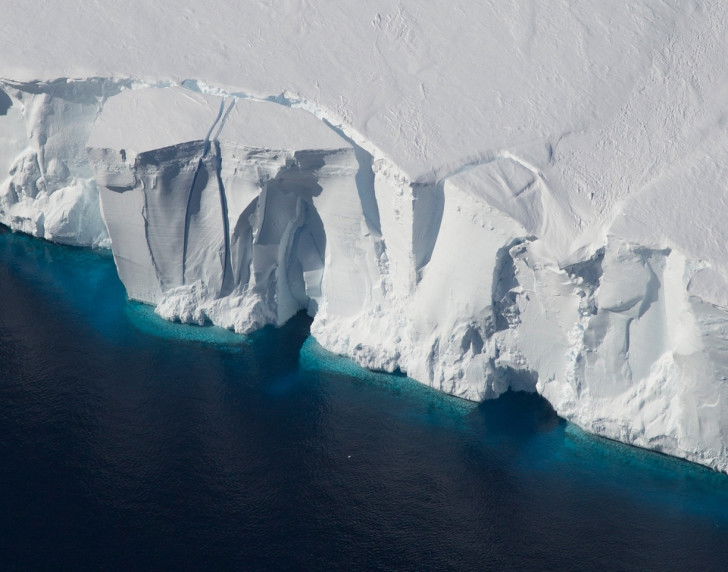Business
'Arctic melting will open up new shipping routes'

Sochi (Russia), Nov 22
The melting of the Arctic will open up a new shipping route which will have an impact on the Indian Ocean traffic, an Indian academician said on Monday.
Speaking to IANS on the sidelines of the global nuclear power exhibition-cum-conference held here by Russian company Rosatom, Prof Rudra Prasad Pradhan, Professor, Department of Humanities and Social Sciences, Birla Institute of Technology and Science, Pilani, said: "If the Arctic melts and the shipping route opens up, it will cut the cost by 40 per cent for shipping lines."
He also added the shipping route will also have its impact on the traffic in the Indian Ocean.
Pradhan said currently traffic on the Indian Ocean is a transit route where ships deliver goods to India and move forward and what will be the future impact of Arctic opening up on India will have to be seen.
There could also be a circular route for the shipping lines, he added.
He also said India can take advantage of the new themes like Smart Port, Green Shipping and Net Zero.
Earlier speaking at the Round Table at the nuclear conference on 'Blue Economy: Government, Business, and Science for a Sustainable Future', Pradhan said India has an Arctic policy and has institutional linkages.
Pointing out ocean is called Sagar in Hindi, Pradhan cited Prime Minister Narendra Modi who had said Sagar is Security and Growth for All.
Ocean resources contribute to social and economic growth and welfare in many countries around the world through the industries associated with marine and coastal resources.
According to OECD estimates, the global ocean economy generates $1.5 trillion in global value added annually, and this figure is expected to double in size to $3 trillion by 2030.
At the same time, the ocean economy is becoming increasingly influenced by sea freight, which already accounts for more than 80 per cent of the global trade.
Meanwhile, ship-building, port infrastructure, and other marine-based industries continue to grow.
According to Nikolai Shabalin, Executive Director, Lomonosov Moscow State University Marine Research Centre, the biggest part of Russia is harsh sea like the Arctic region.
Russia wants to connect to the Arctics and other industries like tourism, said Ekaterina Lyakhova, Director for Business Development, the State Atomic Energy Corporation Rosatom.
The other speakers were: Natalia Stapran, Director, Department of Multilateral Economic Cooperation and Special Projects, Russia's Ministry of Economic Development, Prof. Mohamed Ahmed Said, Professor of Physical Oceanography, National Institute of Oceanography and Fisheries, Egypt, amd Raj Jit Singh Wallia, Deputy Chief Financial Officer, DP World.

13 hours ago
Thanksgiving Day Observed Across the U.S.; Messages Highlight the Power of Gratitude

13 hours ago
'MAGA' Vs America Fist threatens Trump's agenda: Frank F Islam, Washington

17 hours ago
Sharanjit Thind (R) Announces Run for Congress in New York’s 18th District

17 hours ago
Langley redux in Washington? Over three decades ago, another ambush, another lone shooter who rocked the US

20 hours ago
Priyanka Chopra celebrates the achievements of ‘Bharat Ki Betiyaan’ in sports

20 hours ago
Dhanush shares why his character Kundan from ‘Raanjhanaa’ refuses to let go of him even after more than a decade

20 hours ago
Hema Malini celebrates her life with Dharmendra, shares rare glimpses from their courtship

20 hours ago
Millie Bobby Brown calls Eleven’s arc ‘most meaningful story to tell’

20 hours ago
Nawazuddin Siddiqui: Returning as Jatil Yadav feels like revisiting a part of myself that never left

20 hours ago
Hema Malini mourns ‘loving husband’ Dharmendra: He was everything to me

20 hours ago
Shivakumar’s cryptic X post heats up K'taka power tussle amid Kharge’s move to contain crisis

20 hours ago
Udhayanidhi Stalin turns 48; leaders hail TN Deputy CM as 'Hero of Hope'

21 hours ago
Social media content guidelines in final stage: Centre tells SC






















